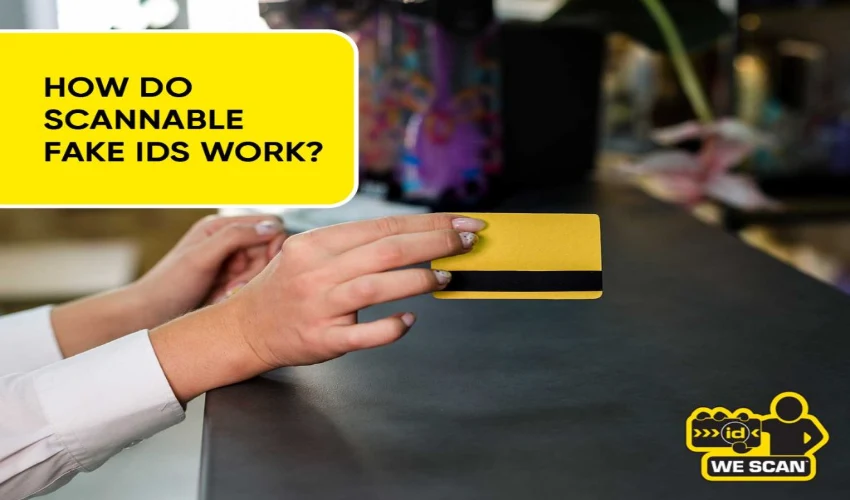In today’s digital-first marketplace, efficiency, traceability, and consumer trust are more critical than ever. As companies strive to meet increasing demands for product transparency and security, scannable IDs—such as QR codes, barcodes, and RFID tags—have become indispensable tools. These compact codes can hold vast amounts of information and provide instant access to data with a single scan. But beyond convenience, why should businesses truly consider implementing scannable IDs for their products?
Enhanced Inventory Management
One of the most obvious and impactful benefits of using scannable IDs is streamlined inventory management. Whether you’re a small business managing a local store or a large corporation operating across continents, tracking thousands of items manually is both time-consuming and error-prone.
With scannable IDs, every product can be quickly logged, tracked, and updated in real time. This not only reduces human errors but also ensures more accurate stock levels, minimizes shrinkage, and enables better forecasting. Many inventory management systems now integrate with barcode or RFID technology, making adoption easier and more affordable than ever.
Improved Supply Chain Transparency
Consumers and regulatory bodies are increasingly demanding transparency in supply chains. They want to know where products are made, how they are sourced, and whether ethical standards are maintained throughout the production process.
Scannable IDs help businesses provide this transparency. By scanning a code, anyone along the supply chain—including customers—can access product details like the origin of raw materials, manufacturing dates, shipping routes, and handling processes. This level of transparency can help build brand trust and foster long-term customer loyalty.
Counterfeit Prevention and Product Authentication
In industries such as pharmaceuticals, electronics, fashion, and luxury goods, counterfeiting is a significant concern. Fake products not only hurt revenues but also pose serious risks to consumer safety and brand reputation.
Scannable IDs offer a powerful way to authenticate products. By linking each product to a unique digital identity that’s stored in a secure database, brands can allow consumers and retailers to verify authenticity instantly via a smartphone or scanner. Some companies are even leveraging blockchain technology to make these identities tamper-proof and publicly verifiable.
Enhanced Customer Engagement
Modern Scannable ID can do more than just store product information—they can connect with customers in interactive and personalized ways. For instance, a QR code on packaging can lead to how-to videos, promotional offers, warranty registrations, user manuals, or social media pages.
This type of engagement adds value beyond the physical product and encourages deeper customer interaction. It also allows businesses to gather valuable data on consumer behavior, such as which content gets the most clicks or which products generate the most scans. This data can then be used to refine marketing strategies and improve customer service.
Regulatory Compliance and Traceability
For many industries, regulatory compliance isn’t optional—it’s mandatory. From food safety regulations to medical product tracking, businesses must ensure traceability at every stage of the product’s life cycle.
Scannable IDs simplify this process by maintaining a digital trail that regulators can audit. For example, in the food and beverage industry, barcodes can help trace contaminated batches quickly, reducing health risks and avoiding massive product recalls. In pharmaceuticals, serialization using scannable IDs is becoming a legal requirement in many countries to ensure safe and traceable drug distribution.
Cost-Effectiveness and Scalability
Implementing scannable ID systems might seem like a costly investment at first, but it pays off in the long run. Modern solutions, especially QR codes and barcodes, are inexpensive to create and easy to print. They don’t require extensive hardware or specialized knowledge to use.
Moreover, the scalability of these systems means businesses can start small—perhaps tagging only a few product lines—and expand as needed. Cloud-based solutions also make it easy to manage data without investing in expensive infrastructure.
Environmental and Sustainability Benefits
As more companies adopt sustainable practices, scannable IDs are proving to be valuable allies. Instead of printing detailed manuals, ingredient lists, or usage instructions on packaging, companies can link this information digitally using a QR code. This reduces the need for excessive packaging materials, helping companies lower their environmental footprint.
Furthermore, these codes can help consumers dispose of products properly by linking to recycling instructions or product take-back programs.
Future-Proofing Your Business
The future of commerce is digital, and scannable IDs are at the heart of that transformation. As technologies like the Internet of Things (IoT), Artificial Intelligence (AI), and blockchain become more integrated into supply chains and retail, scannable IDs will play a critical role in enabling these innovations.
For example, smart shelves in retail stores can automatically scan products with RFID tags to monitor stock levels. AI systems can analyze scan data to predict consumer trends or detect fraud. The possibilities are growing rapidly, and businesses that adopt these tools now are better positioned to stay competitive in an evolving landscape.
Conclusion
Incorporating scannable IDs into your products is no longer just a nice-to-have feature—it’s a strategic necessity. From enhancing operational efficiency to building trust with consumers, scannable IDs deliver a wide range of benefits that can drive growth, protect brand integrity, and support long-term success. Whether you’re aiming for better traceability, stronger customer engagement, or future-ready innovation, the time to embrace scannable IDs is now.
